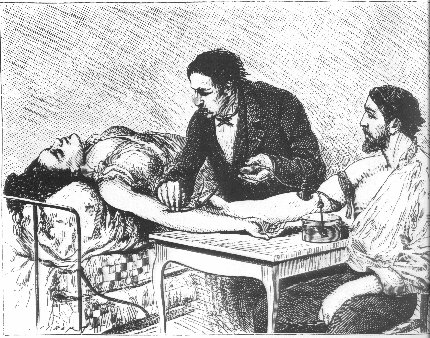In the National World War II museum, it is easy and even triumphant and pride-generating to look back and see some of the scientific advances made during World War II. There’s no doubt that science is advancing. But I wonder if our ethics can keep pace.
I am fairly proud of Teflon. And synthetic cortisone is widely used and may have saved plenty of lives. It’s a steroid that knocks down the action of the immune system. When a medical substance becomes cheaper and easier to use and known to the public, then it runs a real danger of getting overused. Most concern about overuse is focused on illegal steroids taken by athletes. Nevertheless, everything that can be helpful and fast may make things worse. One example would be the over-prescribing of steroids to kids with allergies.
Penicillin had been invented before WWII, but its use did not become widespread until WWII. Of course, it took people awhile to find out about the ability of bacteria to develop resistances to antibiotics. This has led to newer and stronger antibiotics, which would not be the worst thing in the world. Unfortunately, the excessive use of antibiotics has led to untreatable infections, such as methicilline-resistant strep and an untreatable strain of tuberculosis. Read more on Science and War (and Ethics)…
Filed under medicine, News, prescription drugs, Research, Science by on Oct 14th, 2012. Comment. ![]()
A beloved football coach – I might even say a living legend – finds his life destroyed after a luminous career. All because of alleged inaction – perhaps to shield a friend, perhaps to preserve the “old school” or for other reasons.
And the sad story of Joe Paterno is only one more chapter in how the victims who suffer are once again vilified, and how we wonder if it is even possible for justice to prevail when such tragedy is involved.
When I was in the year of training for psychotherapy, I felt fortunate to study under a knowledgeable PhD who ran the gamut from psychoanalysis to cognitive styles in his competencies.
The thing he told us was the most important thing to do during our psychotherapy training was for each of us to isolate the population with which we could not work. Read more on Penn State Sports Scandal Destroys Lives…
Filed under Sexual Misconduct by on Nov 10th, 2011. Comment. ![]()
I am old enough to remember having briefly met then-senator from Massachusetts, John Fitzgerald Kennedy, at a synagogue breakfast in my hometown – a suburb of Boston. He had donned a skull cap, and shook hands with my parents as well as with me. I talked little in those days, which is a testament to how young I was. I could stand unaided, and the senator shook hands with me.
Years later, his was one of the first presidential elections I tried to follow. People were very worried that he was Catholic. In our neighborhood, anybody I knew who was not Jewish seemed to be Catholic. It had never bothered me. I remember seeing on television some news-reporting-human asked him about his need to be obedient on the Pope, being a Catholic and all, and how that could limit his ability to serve. He gave what I thought then was a good answer, about not being obliged to do anything the Pope happened to say, but saying his service to the people of the United States came first. I had thought that a good answer at the time.
My parents had all kinds of concerns, as did many Jews of their generation, even though they habitually voted Democrat. Read more on Whose Beliefs Do You Follow? Your Own!…
Filed under Religion by on May 12th, 2011. Comment. ![]()


